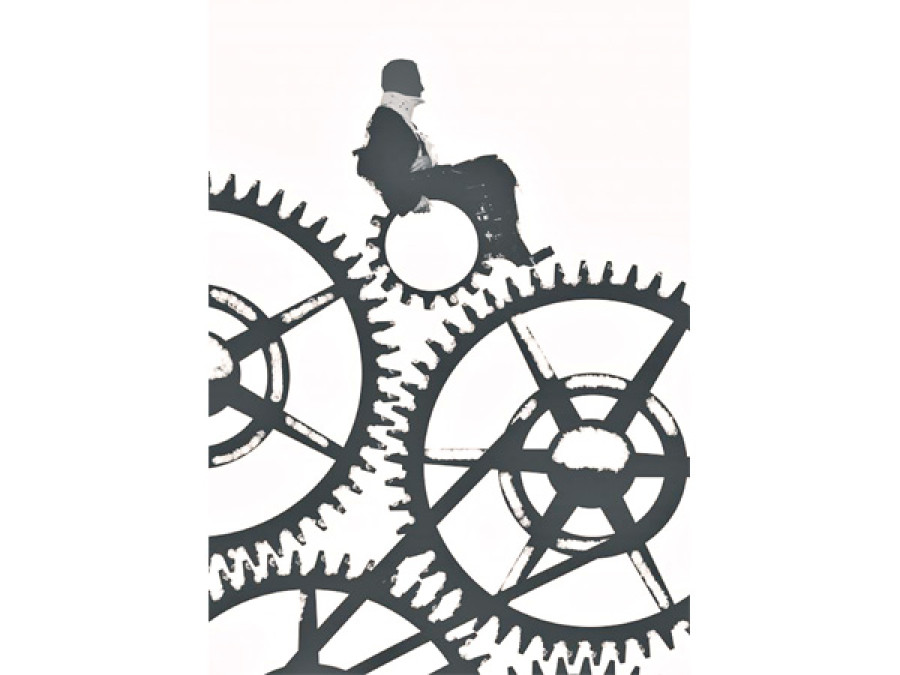Opinion
The missing millions
Programmes for the disabled must be redesigned to employ persons with disabilities
Sudarshan Neupane
Post the promulgation of the much-awaited constitution, Nepali people, including persons with disabilities, hope that those leading the country will devise sound social protection policies. To do so, it is of utmost importance to devise inclusive national social protection policies for persons with disabilities that can contribute to their full and active participation.
Vulnerable group
Various reports indicate that over 80 percent of persons with disabilities in the world currently reside in developing countries. A large majority of them have limited access to healthcare, education and formal and informal employment. The 2011 census reported that 1.94 percent of the population of Nepal has some kind of disability. But this figure is expected to be much higher. According to the World Health Organisation, disabled people constitute approximately 15 percent of the world population. Given such a high number of people with disability, it would be challenging for any country to attain inclusive development without their meaningful contribution. As per the International Labour Organisation, although no substantial research has been undertaken in Nepal, the exclusion of disabled persons in the workplace results in an estimated annual loss of $1.37-1.95 trillion worldwide.
Unsurprisingly, people with disabilities are also burdened with an extra cost of living than other people due to their need of assistive devices, heathcare facilities and extra support services. As a result, the prevalence of poverty among the disabled and their families is astoundingly high. Likewise, difficulties faced by these persons in accessing essential services and economic opportunities further makes them more vulnerable and pushes them into a vicious circle of poverty. Therefore, social protection is vital for their effective participation in society. Abiding by the UN Convention on the Rights of Persons with Disabilities (UNCPRD), 152 countries including Nepal have developed various social security measures to provide affordable quality healthcare, education, and minimum income security to cover the extra cost of disabled people.
Nepal’s initiatives
The Nepali government does have different social protection measures for people with disabilities in terms of education, healthcare and unconditional cash transfer. Some of these measures, however insignificant, consists of some advanced approaches towards ensuring inclusion such as the provisions of Braille curriculum for deaf children, providing writers or additional hours during exams for students with disability. Similarly, the government also provides free medical checkup for disabled people in public hospitals and there is a tax exemption in place for importing assistive devices.
Correspondingly, the government has been providing non-contributory cash transfer for vulnerable groups such as the disabled. Elderly persons and fully-disabled persons receive Rs 1,000 per month on a quarterly basis. Recently, the government also endorsed a 50 percent discount on land transportation and domestic flights for the disabled.
Following the devastating April earthquake, the government has launched additional provisions for assistive devices, vocational training, and other livelihood support programmes for the disabled persons and their families. However, though the government does allocate budget for welfare policies and programmes, similar to other development projects in the country, the fund does not directly reach the targeted groups. Nevertheless, the recognition of the disability as a prime area of intervention by the government is appreciable.
One of the major problems in Nepal is that there is no accurate database to guide appropriate intervention for people with disabilities. Similarly, the distribution of disability identity card and its associated benefits remain hugely debated as there is no uniformity. It takes a longtime to implement existing legal provisions and even Supreme Court verdicts. The lack of adequate monitoring and evaluation mechanism for the disability-focused programmes has increased discrepancy of information. Besides, politicisation of the rights of disabled persons has, at times, caused political tension and encouraged pretentious measures without realistic and feasible plans to support them.
Road ahead
The recent priorities set by the Sustainable Development Goals for disability-inclusion has encouraged governments, multilateral/bilateral donors and other NGOs to develop disabled-friendly mechanisms to attain the specified goals by 2030. Consequently, many development NGOs have expressed their interest in working for people with disabilities in Nepal. However, there is a lack of proficient human resources who understand disability concerns and are able to formulate projects to support them. Like any development projects, there is some overlap and duplication in the conventional vocational training packages which rarely help the disabled people to secure jobs.
As stated in the new constitution and in compliance with UNCRPD, government offices and other public places should be made accessible to all persons with disabilities. It is essential to hire translators for the deaf in the inquiry offices. Accordingly, information about services provided by the government should also be disabled-friendly to mainstream social protection programmes inclusive of all persons with disabilities.
There should be mandatory provisions to allocate employment for persons with disabilities in wage-based employment suitable to their skills and capacities. Also, there is a need to introduce new and innovative vocational training packages that have a better chance of helping the disabled to secure jobs after completing trainings. Essentially, the updated database with the accurate information of the disabled population is much needed.
Similarly, Social Welfare Council could urge the I/NGOs to allocate at least five percent of their investment to the welfare of persons with disabilities and their families. A paradigm shift is necessary to design disability-specific schemes to support their livelihood. The government must implement the provisions and court verdicts targeted at the disabled. Nepal will also have to increase its resource allocation for social protection to develop an effective and inclusive social protection system.
Neupane is Livelihood Advisor at Handicap International. Views expressed in this article are personal




 20.53°C Kathmandu
20.53°C Kathmandu











